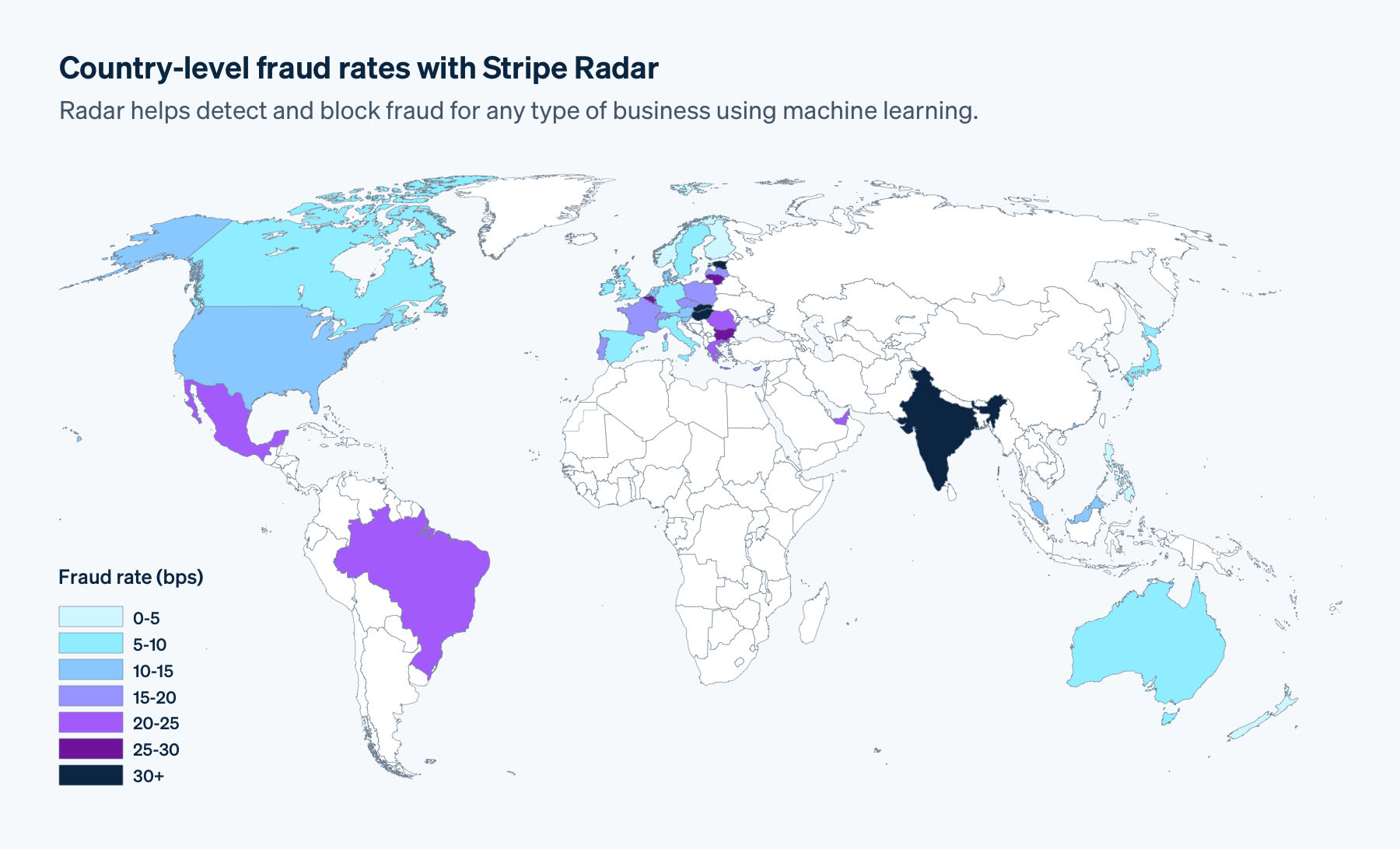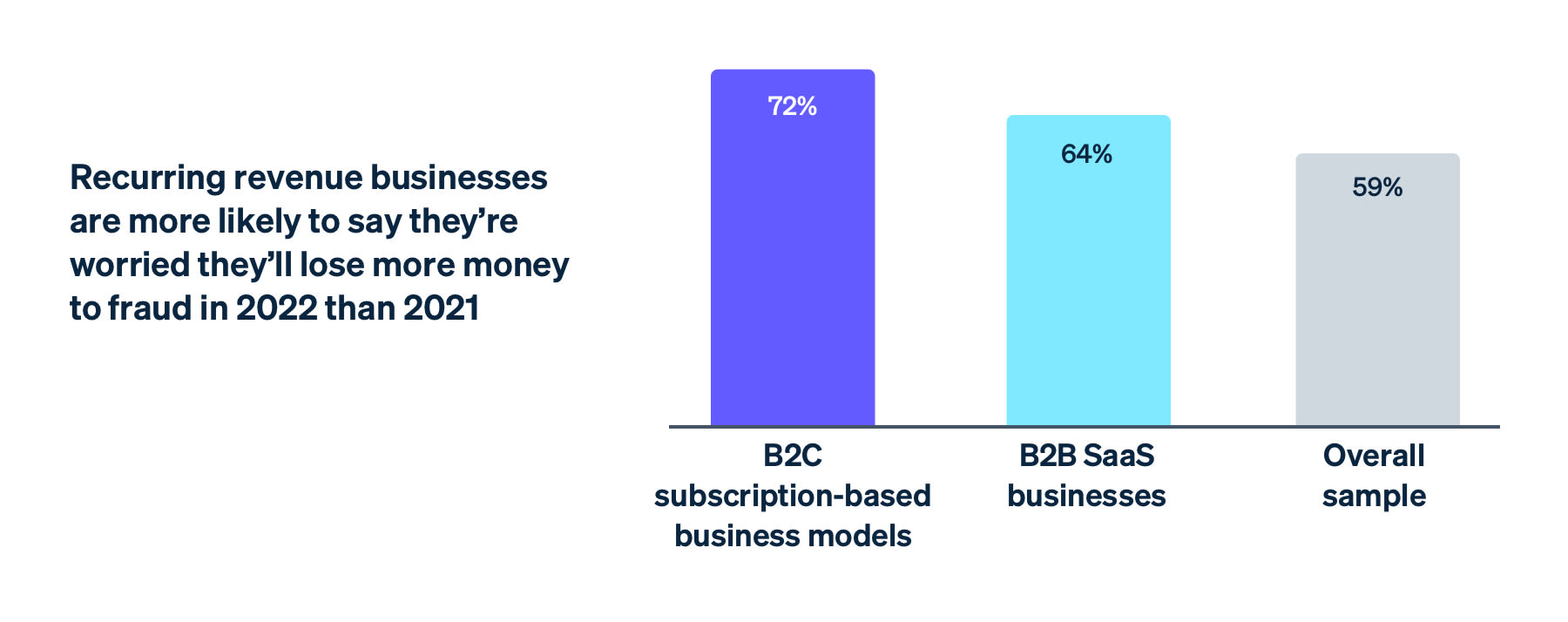Stripe report details how businesses can increase revenue in the face of rising e-commerce fraud
- Rising fraud is curtailing growth for a majority of businesses.
- Nearly two-thirds of global business leaders say it is becoming harder to fight fraud.
- Stripe’s enhanced fraud prevention model now blocks hundreds of millions of dollars of fraud per year, freeing resources for core business activities.
SAN FRANCISCO—Many aspects of the global economy are beyond the control of individual businesses. There is little they can do to curb inflation, unknot supply chains, or halt a war. But they can optimize the way they manage their business—and a new report from Stripe finds that one of the biggest drags on growth is something they have a lot of power to curb: ecommerce fraud.
Combining data from billions of transactions on the Stripe network from 2019–2021 with a survey of more than 2,500 businesses from 9 countries, the report identifies global fraud patterns across geographies and business models. It details the growing burden global businesses face from ecommerce fraud, the difficult choices they must make, and the steps they can take to fight back and protect their margins. Key findings include:
- Nearly three-quarters of businesses have diverted engineering resources, and more than half have curtailed expansion plans, due to fraud concerns.
- Subscription businesses struggle most with fraud. Seventy-two percent think they will lose more money to fraud in 2022 than 2021.
- The volume and sophistication of fraud varies dramatically across markets, requiring tools that adapt to local fraud patterns. France had nearly twice the fraud rate of Germany, while Singapore experienced half the rate of the wider Asia-Pacific region.

“Fraud doesn’t slow down when the economy does. It’s vital for businesses to maximise the value of every dollar by turning away as many fraudulent actors as possible without blocking good customers – and this report shows them how they can do it,” said Will Megson, product lead for Stripe Radar, Stripe’s main fraud prevention product.
More fraud, tougher choices
More than half of businesses surveyed reported that fraud is a growing concern. This changing risk environment has had a particular impact on businesses offering B2B SaaS products and B2C subscriptions. These companies are more susceptible to fraud, the report explains, because they are “more likely to be household brands, making it easier for fraudulent actors to resell the stolen goods or services (such as buying a digital subscription with a stolen credit card, then selling it for a lower price).”

Business leaders face tough choices about how to respond. The more they try to prevent fraud, the more likely they are to block legitimate charges. The report identifies the optimal sensitivity for a fraud model depending on a business’s margins – the higher the margins, the less sensitive the model should be. Businesses can also mitigate fraud risk through extensive manual review of flagged charges, but that requires a massive commitment of human resources – something scaleups and startups often can’t afford.
Improvements to Stripe's fraud prevention tools help businesses maximise revenue
Over the last year, Stripe has invested substantially in its fraud prevention tools to help businesses maximise resource allocation during a time of economic slowdown. In 2021, Radar reduced dispute rates by 40%, and new improvements this year are helping businesses – including 7-Eleven, AdBlock, the British Council, Deliveroo, and Kickstarter – save money across the transaction flow, generating revenue and freeing resources that they can devote to core business activities.
Regular updates to Radar’s machine learning models block more fraud while letting through more good customers. Stripe estimates one incremental improvement made in May blocks $40 million more fraud and recovers an additional $70 million in revenue for users every year – on top of the billions of dollars Radar has already saved them.
Adblock, which helps more than 100 million users protect their privacy and control their experience online, is using Radar and Stripe Checkout to accelerate its global expansion while protecting transactions.
“It’s not well understood just how hard fraud makes it to grow a business online. We've been a target for card testing attacks for years, one of which was so intense we were nearly kicked out of the card networks, which would have effectively ended our ability to run our business. Stripe offered us ongoing protection that we could fine-tune against card testers, nearly eliminating fraud losses as we grew,” said Matthew Maier, CEO of Adblock.
Read the full report.